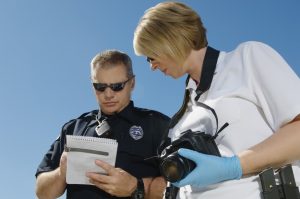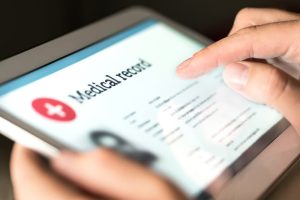Posted on Sunday, February 20th, 2022 at 3:45 pm
A traumatic brain injury (TBI) is a severe injury to the brain. It can lead to debilitating symptoms and interfere with a person’s daily routine. When a TBI occurs in a car crash, workplace accident, or another incident, you likely need medical treatment and rehabilitation to heal.
Most people feel confused following a traumatic accident. A TBI disrupts the brain’s normal functioning and can prevent the victim from making rational decisions. If someone else’s negligence resulted in your TBI, it’s vital to seek immediate medical care and hire a personal injury lawyer. You must take the necessary steps to prove you suffered the injury, and that someone else should be liable.
Below are five ways to prove you sustained a traumatic brain injury so you can pursue compensation from the at-fault party for your medical bills and other expenses. If you or a loved one has suffered a TBI, contact our team today.
Police or Incident Reports

A police report and photos are important.
Car accidents often involve investigations by law enforcement. If someone calls 911 to report the crash, an officer should arrive at the scene to determine what happened. The report they write can include vital information regarding the accident, such as who was at fault and whether law enforcement issued traffic citations.
Investigating officers typically reconstruct crashes using a diagram on the police report to show what they believe transpired. They can also write a brief description explaining the sequence of events leading up to the accident. If they conclude someone else is responsible, you could use the police report to prove you sustained a TBI due to another driver’s misconduct.
Incident reports might be available after accidents at work or scenarios involving a poorly maintained property. You could also create an incident report if you were at a restaurant when someone’s dog attacked you unprovoked. The manager of the establishment could provide an incident report for you to complete regarding relevant details of the incident and the injury you suffered.
Visual Evidence
Visual evidence can be useful during your claim. You or someone else should take pictures of your visible injury. For example, if your TBI resulted from a car crash, take photos of cuts and bruises on your head. During your recovery, you can also take pictures to show whether you suffered permanent scarring, disfigurement, or other physical harm from the accident.
Videos are also significant evidence used in personal injury cases. If you hit your head during the accident, the video might show it, so there’s no argument about whether you sustained a TBI. You could obtain footage from a security camera at the grocery store you were in when you slipped on a wet floor. Or you could secure traffic camera footage to show the moment you hit your head on the steering wheel during the collision.
Medical Records

Make sure you keep all records and appointments.
You can prove your traumatic brain injury happened in the accident with your medical records. Medical records can include information regarding the type of injury you suffered, how it happened, and the treatment you need to recover.
You should ensure that your medical providers include all necessary details regarding your TBI. If they don’t indicate you were injured in a slip and fall or truck accident, the insurance company could claim your TBI resulted from a different accident or preexisting medical condition. That could give the insurance company the evidence they need to deny your claim.
It’s critical to attend every appointment your diagnosing physician recommends, such as pain management, imaging tests, and occupational therapy. You can request a copy of all your medical records to submit to the insurance carrier during your case. If you need help with your incident, reach out today.
Injury-Related Expenses
A traumatic brain injury can require significant treatment for you to recover. You could spend weeks or months at the hospital, in surgeries, or participating in physical therapy. The costs you incur can be expensive, especially if you suffer permanent damage.
Many people never regain normal brain functioning. In some people, debilitating symptoms, such as headaches and dizziness, may be ongoing for life. You might require lifelong medical care or daily assistance performing routine tasks. You could continue to incur expenses while dealing with your injury.
Proving your traumatic brain injury requires more than just showing your medical records. If you want to seek compensation, you must show evidence of the costs associated with treatment. Maintain copies of your medical bills, prescriptions, and out-of-pocket expenses. You can also provide a lost wage report to show you couldn’t work due to your TBI.
Eyewitness Statements
A witness can confirm your story about how the accident happened. If you can track down anyone who saw the moments leading up to the incident, they could back up your version of events. They could also inform the investigating officer or insurance company whether they saw you injure your head in some way.
Contact Us
If you sustained a traumatic brain injury in an accident due to someone’s negligent actions, do not hesitate to contact Farris, Riley & Pitt, LLP. Our Alabama personal injury lawyers have represented accident victims for over 20 years. We will fight for your rights and seek the maximum compensation you deserve.
Call us today at (205) 324-1212 for your free consultation.















